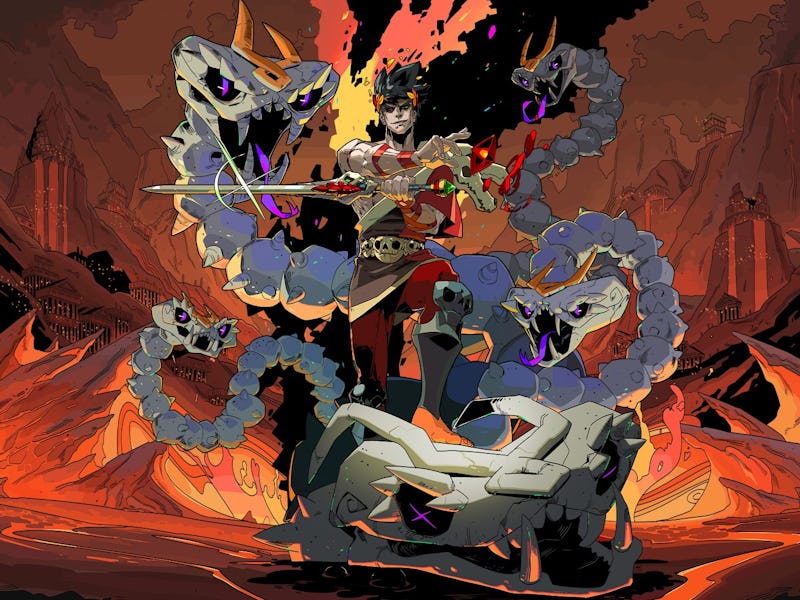
I can count on one hand the number of times I’ve played a game for only a few hours and said, “I think this could be one of the greatest games ever made.” Hades is one of those games, and until I played it, I didn’t think I even liked roguelikes — I might even categorize myself as a “hater” of the genre. But Hades is such a sublimely nearly-perfect game that it transformed me from a hater into a believer, and there’s no doubt in my mind that it’s simply one of the greatest games ever made.
Hades comes from Supergiant Games, the studio behind the likes of Bastion, Transistor, and Pyre — all phenomenal games in their own right that you should play. But Hades is, to this day, the studio’s magnum opus, and it’s genuinely hard to imagine how anything, even Hades 2, can top it.
Hades combines elements of action-RPGs with a roguelike format to spectacular results.
And the core reason for that lies entirely in how Hades revolutionizes the very idea of what it means to be a “roguelike,” specifically, how its entire narrative hook is inexplicably built around the idea of repetition and failure. The synergy between gameplay and story is impeccable in Hades, especially when you factor in a constant feeling of improvement.
But first, if you aren’t familiar with the “roguelike” genre, it’s got a fairly simple definition. Largely, roguelike games focus on procedurally generated elements that make each run or level feel different, and when you lose, it’s permanent, making you start all over — but typically, there’s some element of overall progression.
Hades embraces that idea from its very setup, focusing on a godlike being named Zagreus, the firstborn son of the titular Hades, god of the underworld. Zagreus seeks to escape the tyrannical realm of his father, and in the process is aided by the pantheon of Gods from Olympus (Zeus, Ares, Aphrodite, etc). The entire game is themed around methodically escaping the Underworld, learning the ins and outs of Hades’ servants stopping you, and learning about the family’s dysfunction in the process.
In a game filled with highs, the character writing is absolutely the highlight.
There’s not a moment in Hades where you aren’t getting something in return for your time investment, whether that’s story context, character moments, upgrades, new weapons, and more. All of this is tied together with phenomenal combat that accentuates quick dodging and positioning, with an absurd amount of depth between the various weapon buffs and boons that gods bestow on you while you’re braving the dungeon. It certainly helps that the combat in Hades feels silky smooth, letting you pull off a cornucopia of tight dodges and flashy combos, and drastically changing your approach depending on the upgrades you’ve gathered.
It’s remarkable how different each run can feel, especially when you factor in a variety of random events and characters you can meet, with each character having their own substory — from the tortured musician Orpheus to the oddly good-natured Sisyphus.
But on top of each run feeling remarkably different, Hades also ensures that you’re getting constant rewards and a sense of progression, with multiple currencies that tie into making Zagreus stronger overall. Along the way, you’ll collect items like Darkness, letting you soup up Zagreus’ skills, but even then, it has a narrative hook. The idea of Zagreus getting stronger is directly tied to his connection to his godly family, honing his skills as he communicates with the gods and fights more. There’s a deliberate growth of confidence that takes place within Zagreus, and you can literally see his character growth the further you get into the game.
Every aspect of Hades feeds into the game's overall vision, and everything, absolutely everything, supports its narrative ambitions. And that’s exactly why Hades is so special. It doesn’t just have a good story for a roguelike; it has a genuinely well-written, tightly paced narrative that keeps you invested for every single minute.
Each region in Hades challenges your skills in a different way, ending with climactic boss battles that all have rich narrative context.
There’s so much personality dripping from every aspect of the game — these are characters that you very quickly grow attached to, for a multitude of reasons. There’s the awkwardness between Zagrues and his past romantic flings, Meg and Thanatos, and the drama that ensues between all of them. The Greek gods are hilariously petty, more than willing to throw a subtle dig at each other when talking to Zagreus. And even after beating him a dozen times, Theseus can’t help but talk about his impressive physique.
There’s so much heart and personality injected into everything about Hades. Its world is simply a joy to exist in, whether that’s for five hours or fifty. Hades is the kind of game you start playing at 5 pm, only to look up at the clock and realize it’s been 12 hours. The progression and systems of Hades are unbelievably satisfying, and even more so when they feed into the narrative.
With the release of Hades 2 looming ahead, it’s impossible not to recognize how singularly influential the first game has been, with countless other titles taking inspiration, from Dead Cells to the upcoming Bandai Namco game Towa and the Guardians of the Sacred Tree. But to this day, nothing has managed to reach the synergetic heights of Hades itself, and I doubt anything will for a long time.